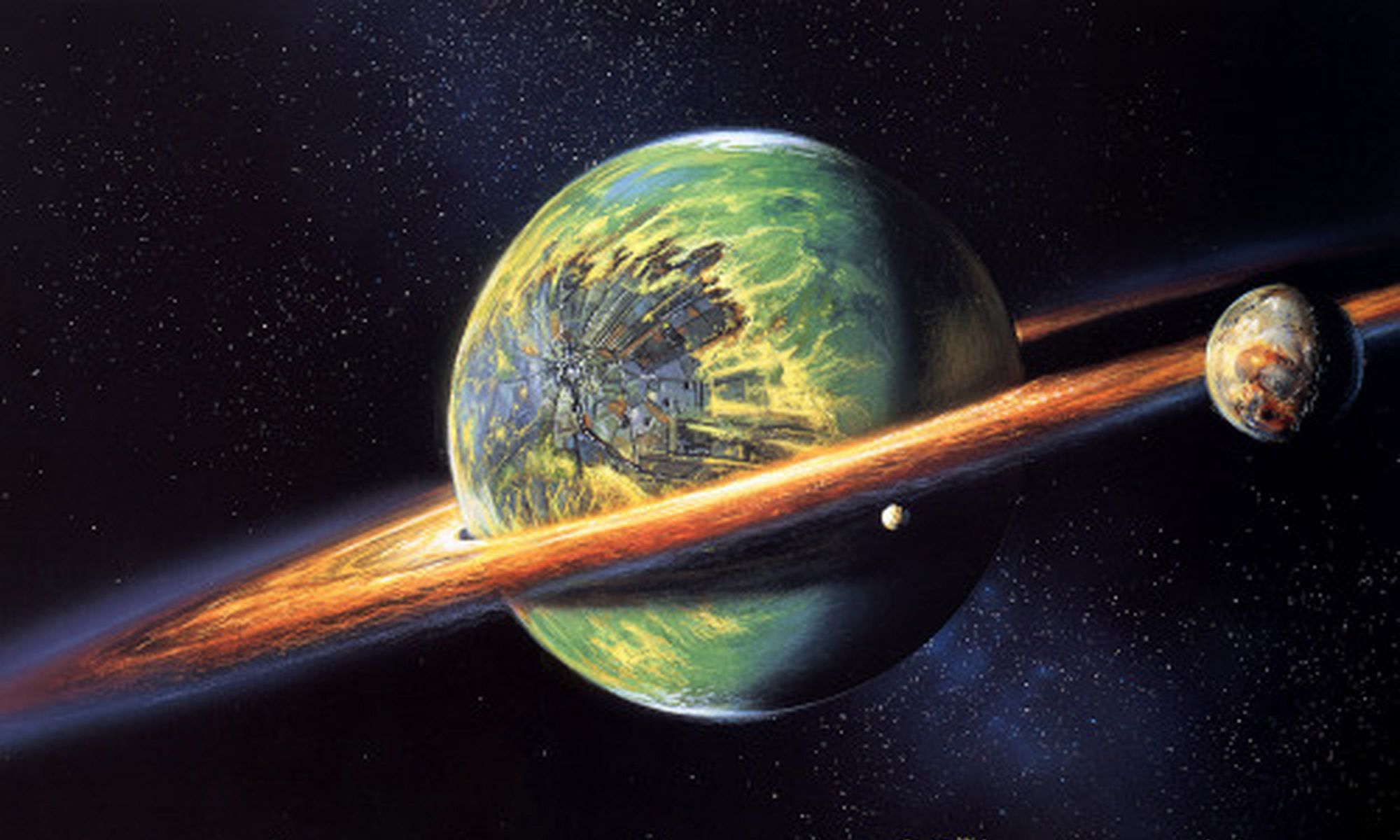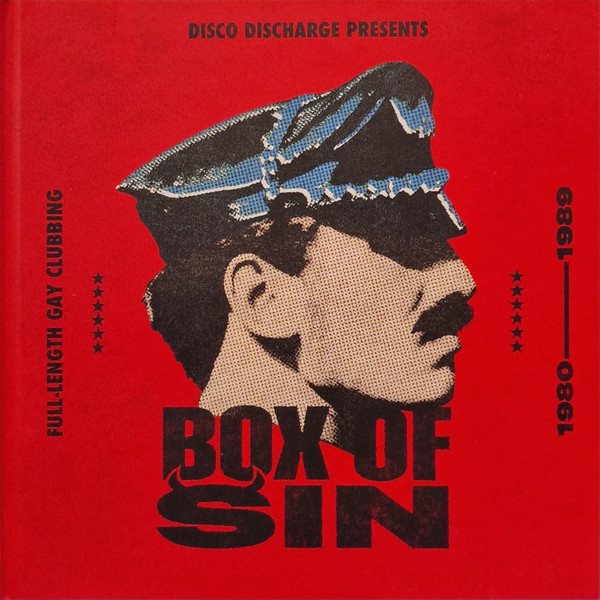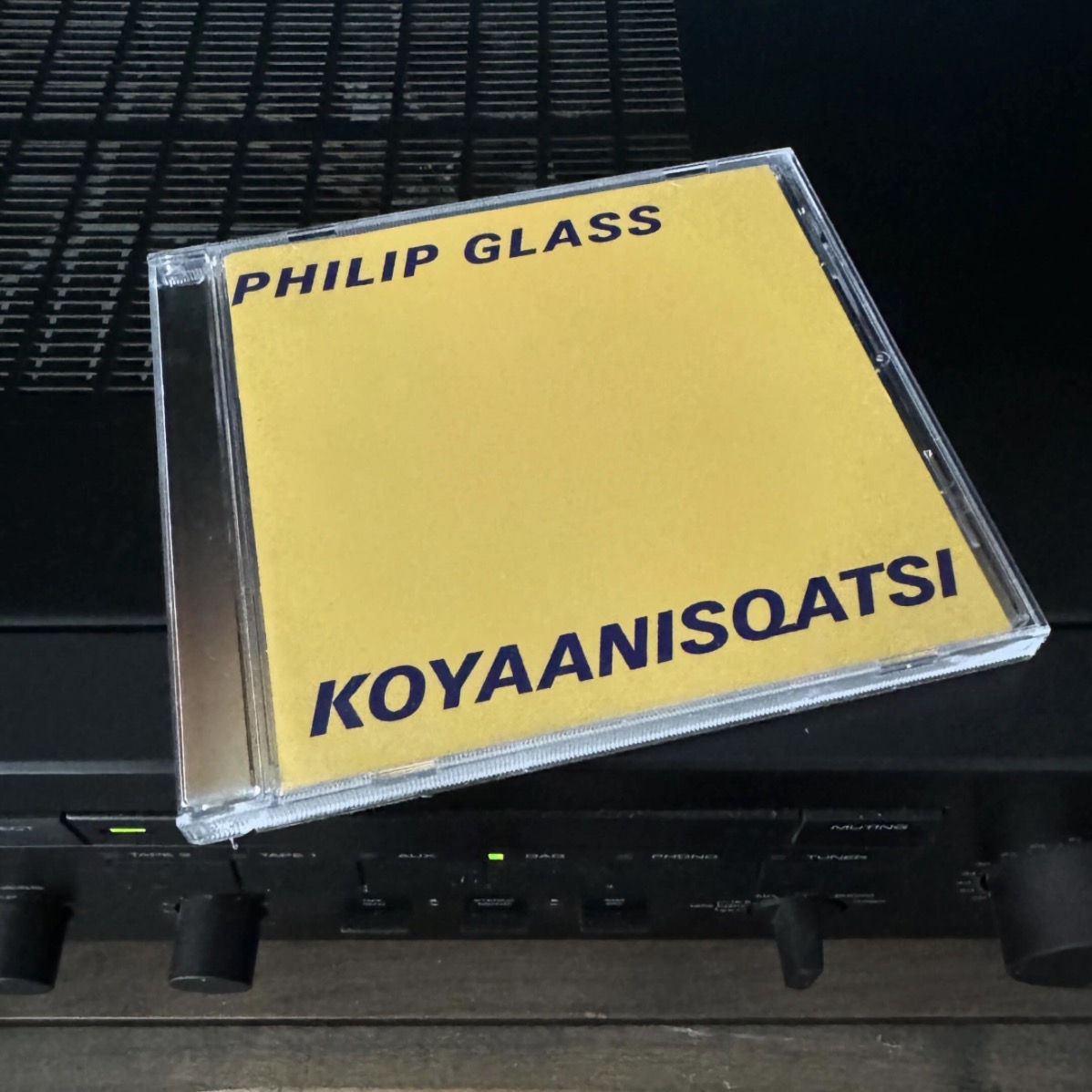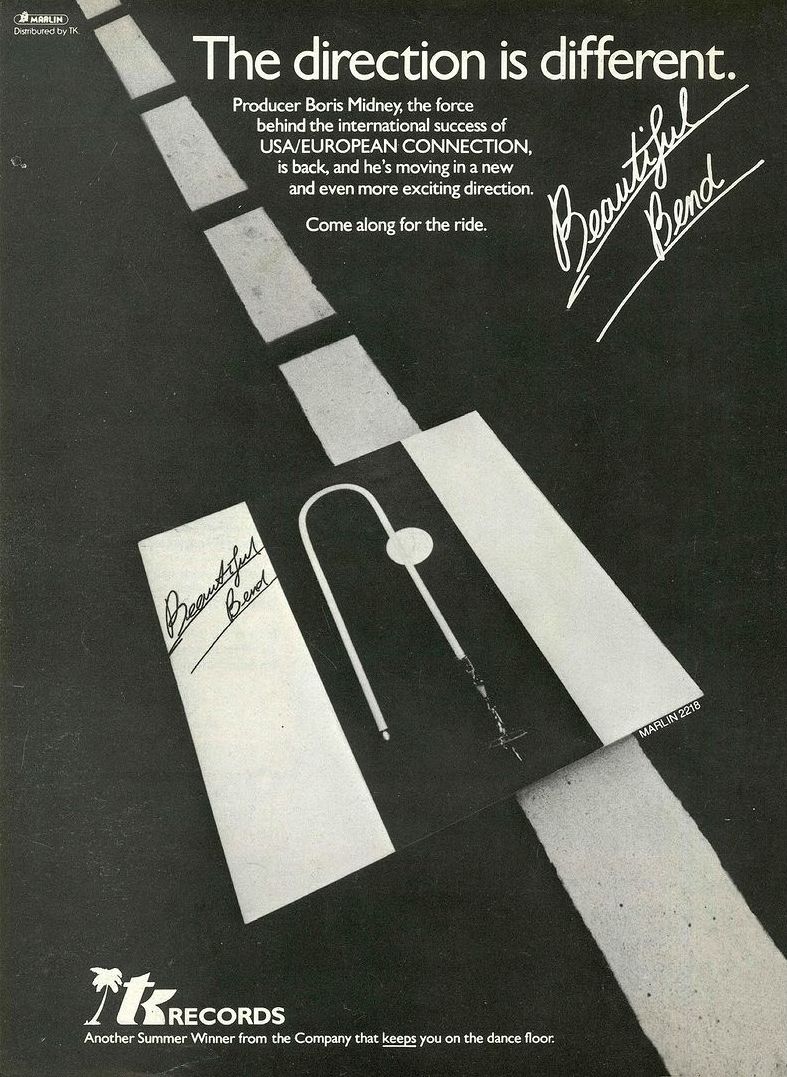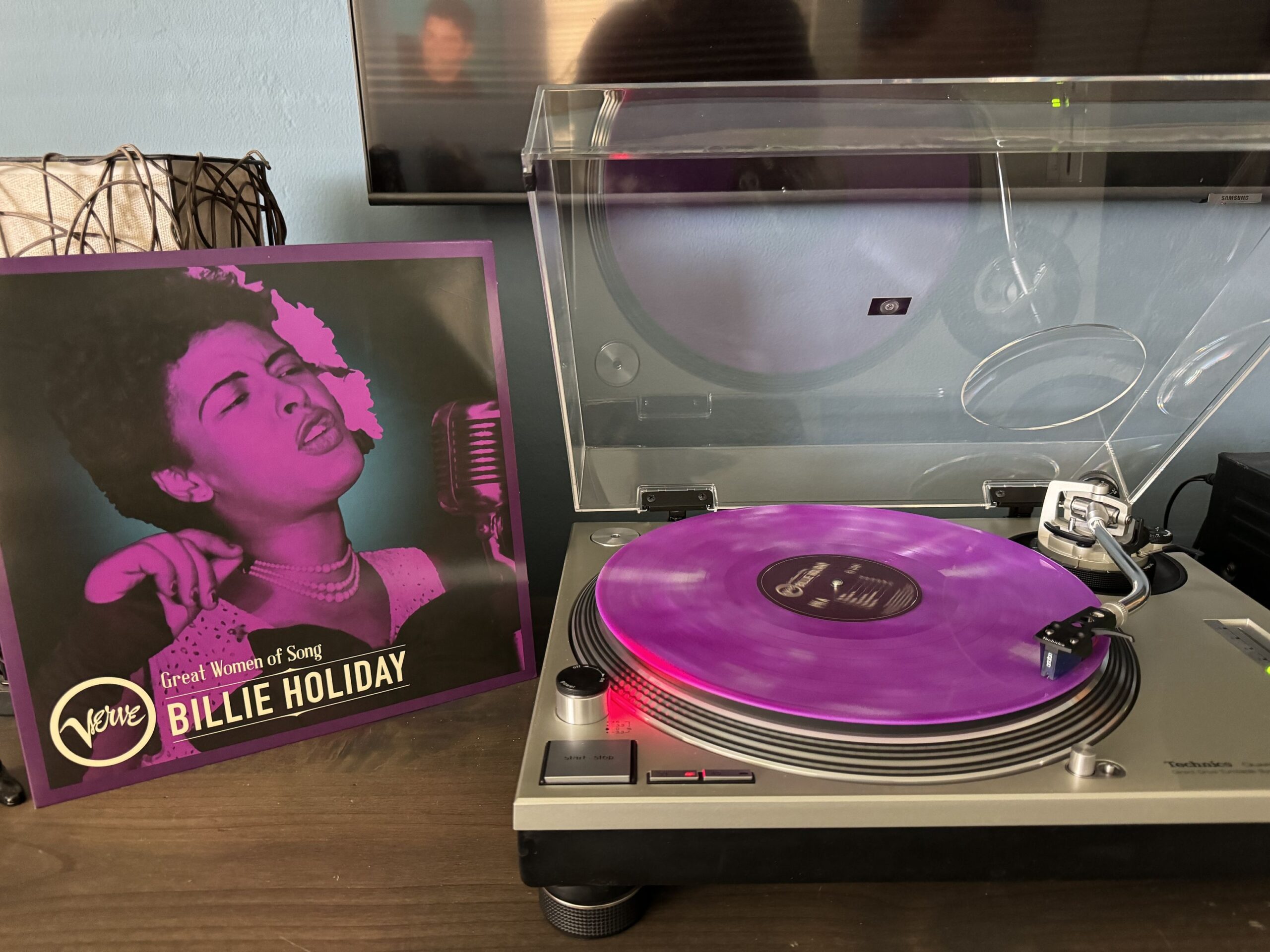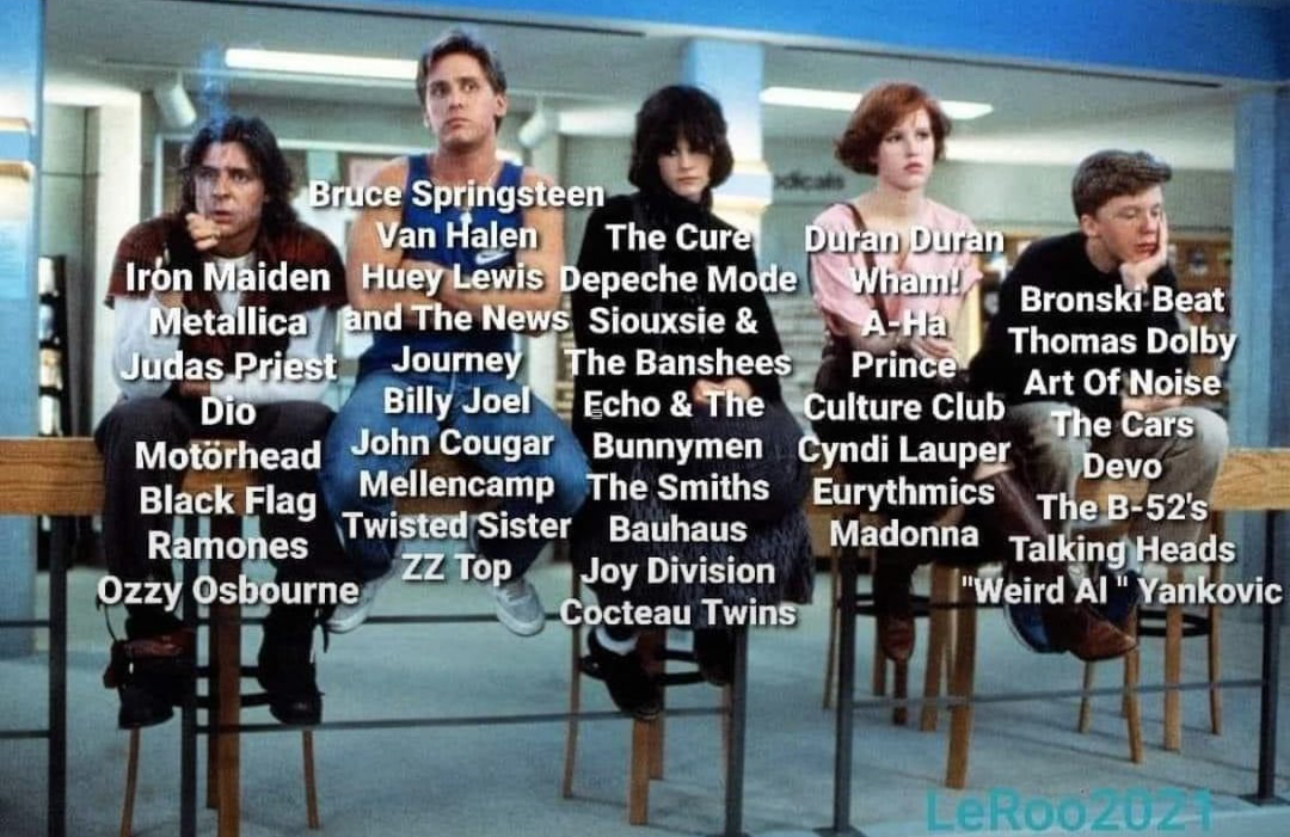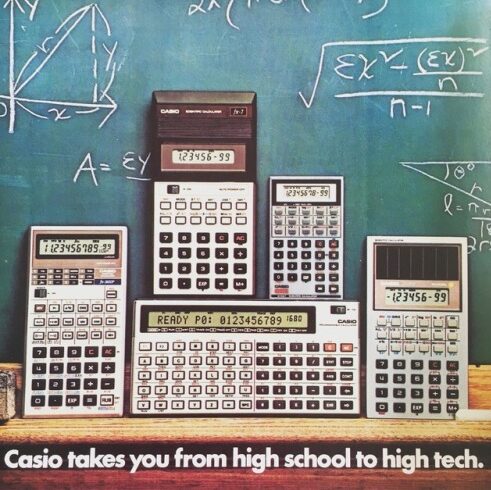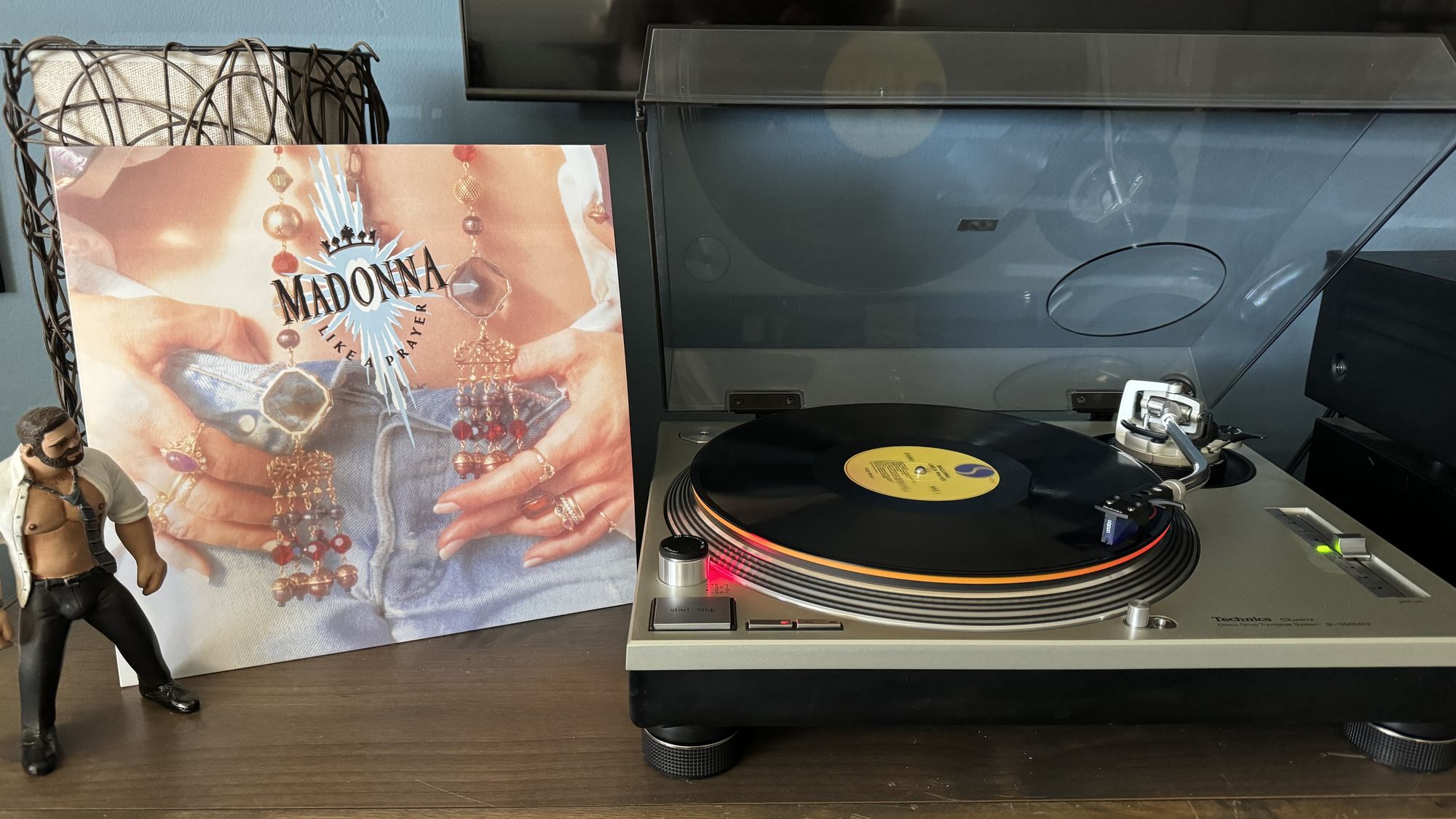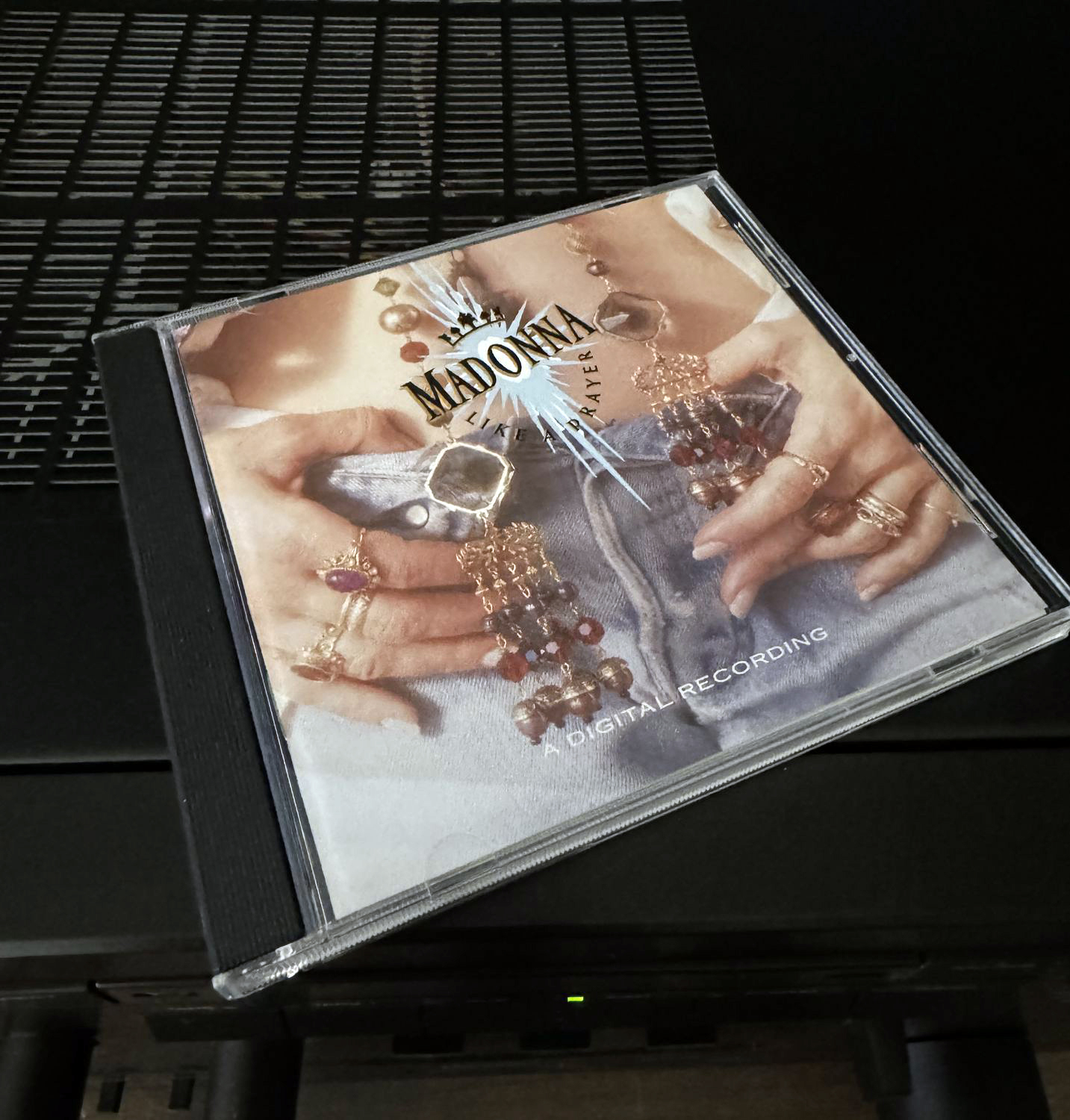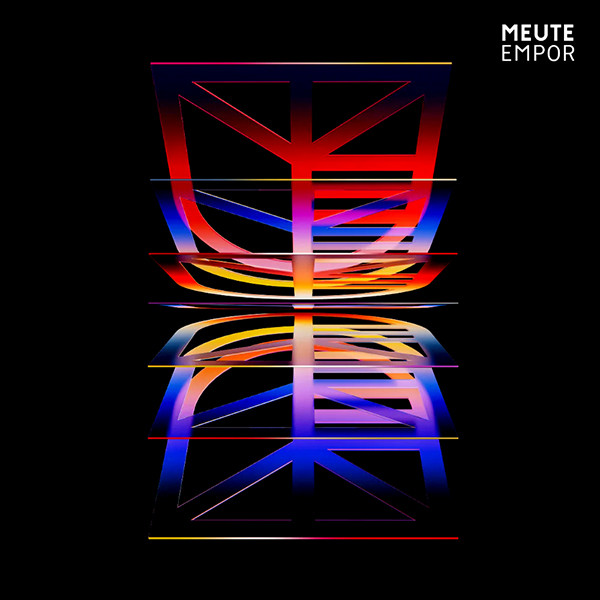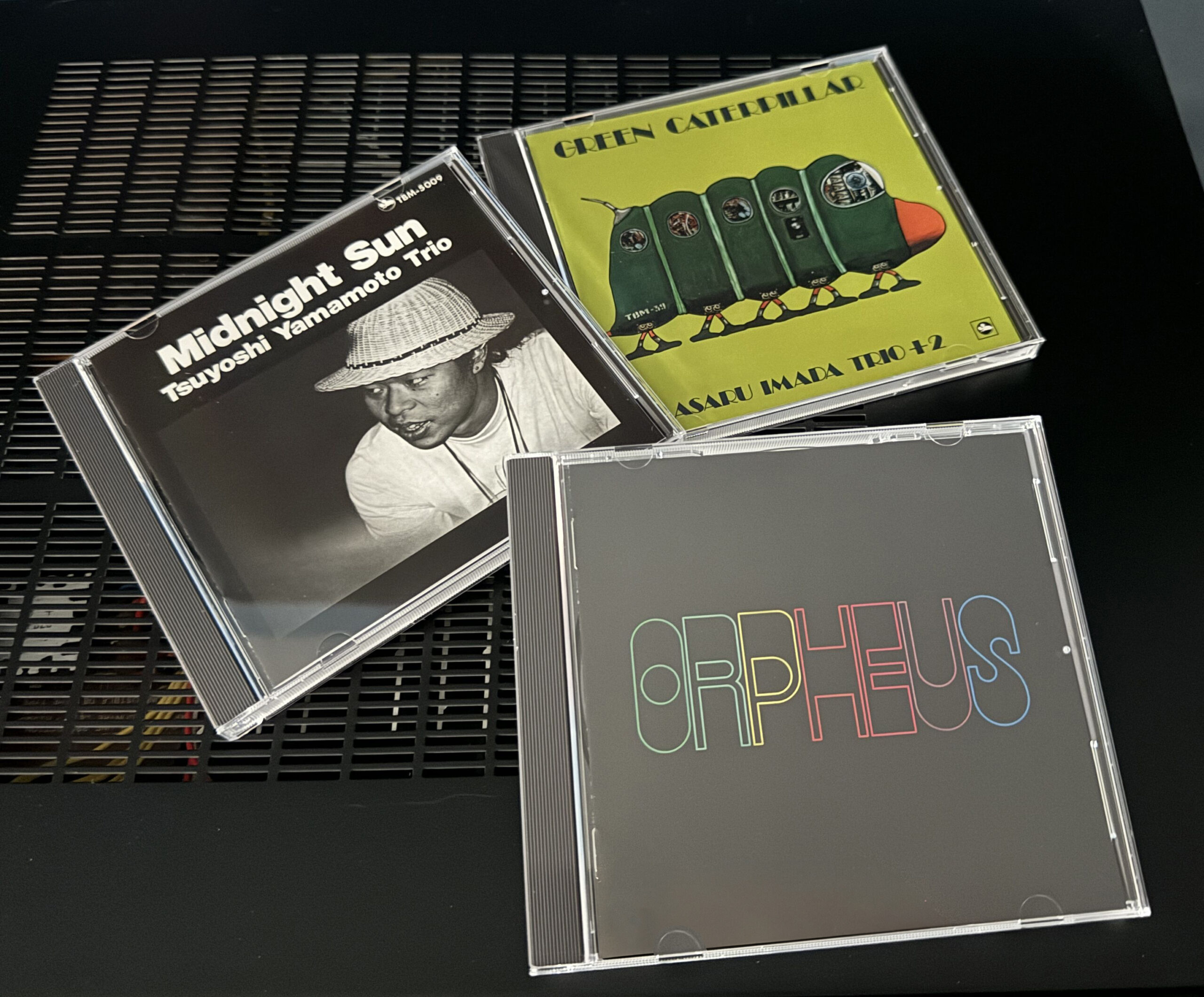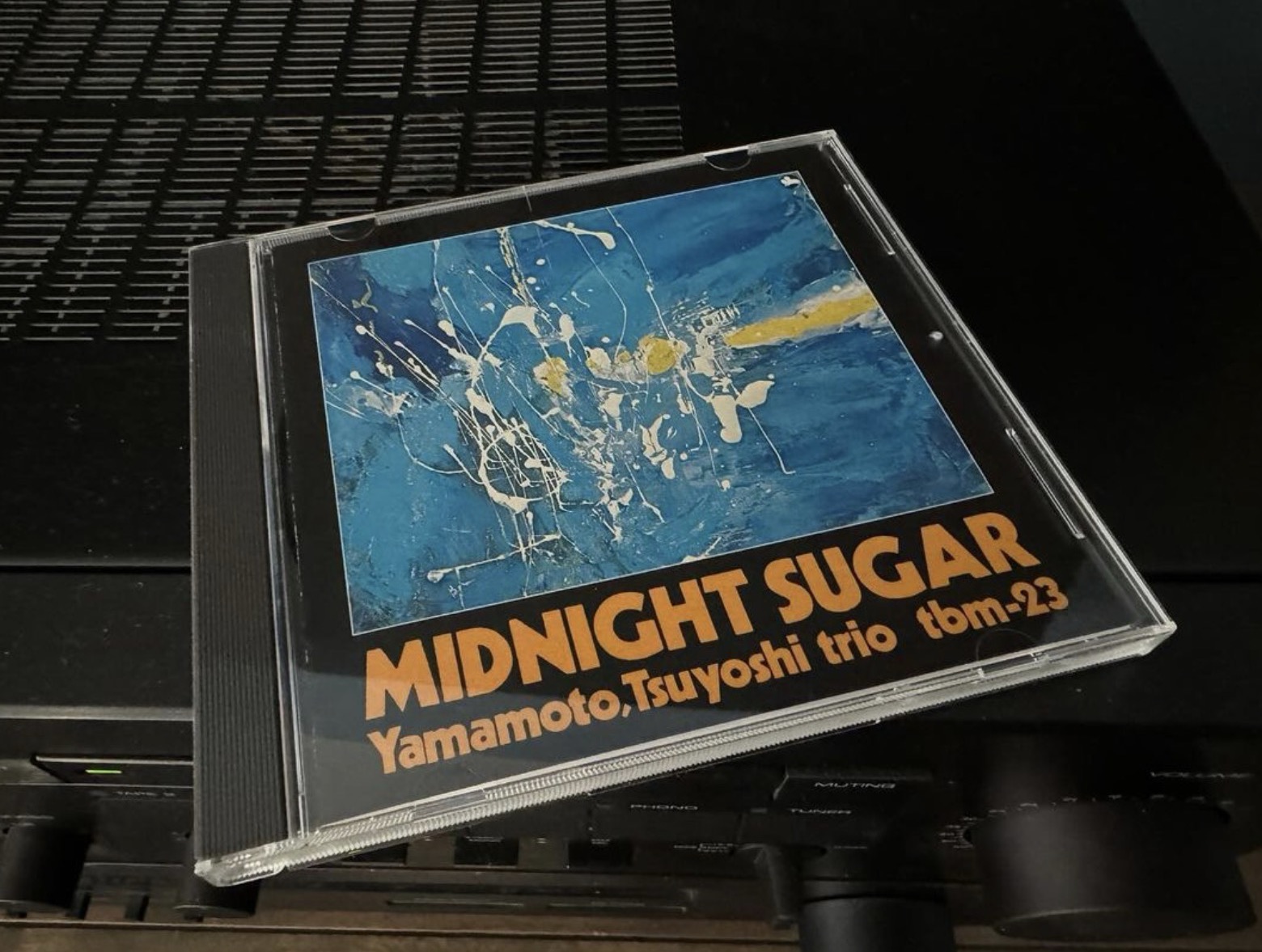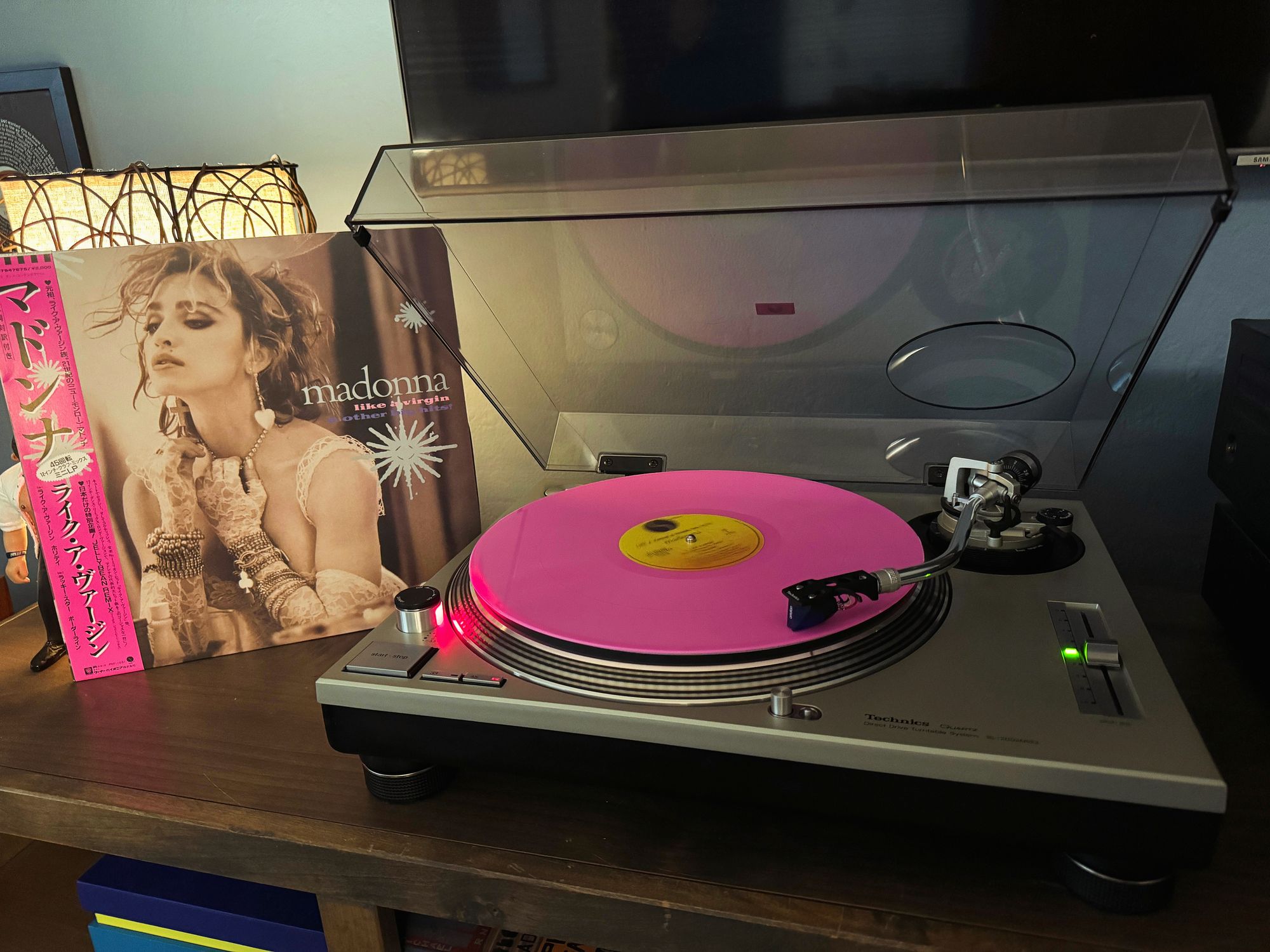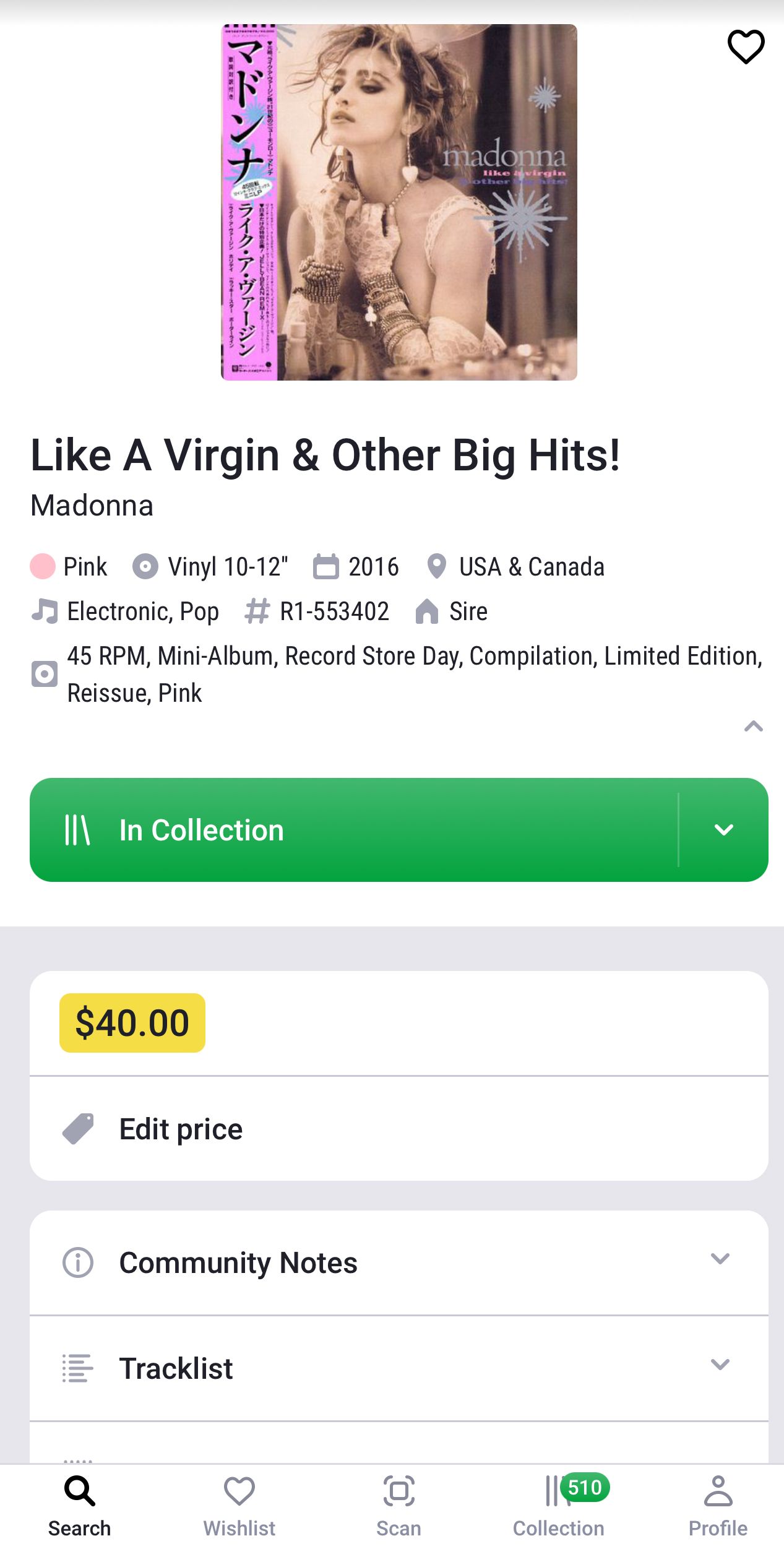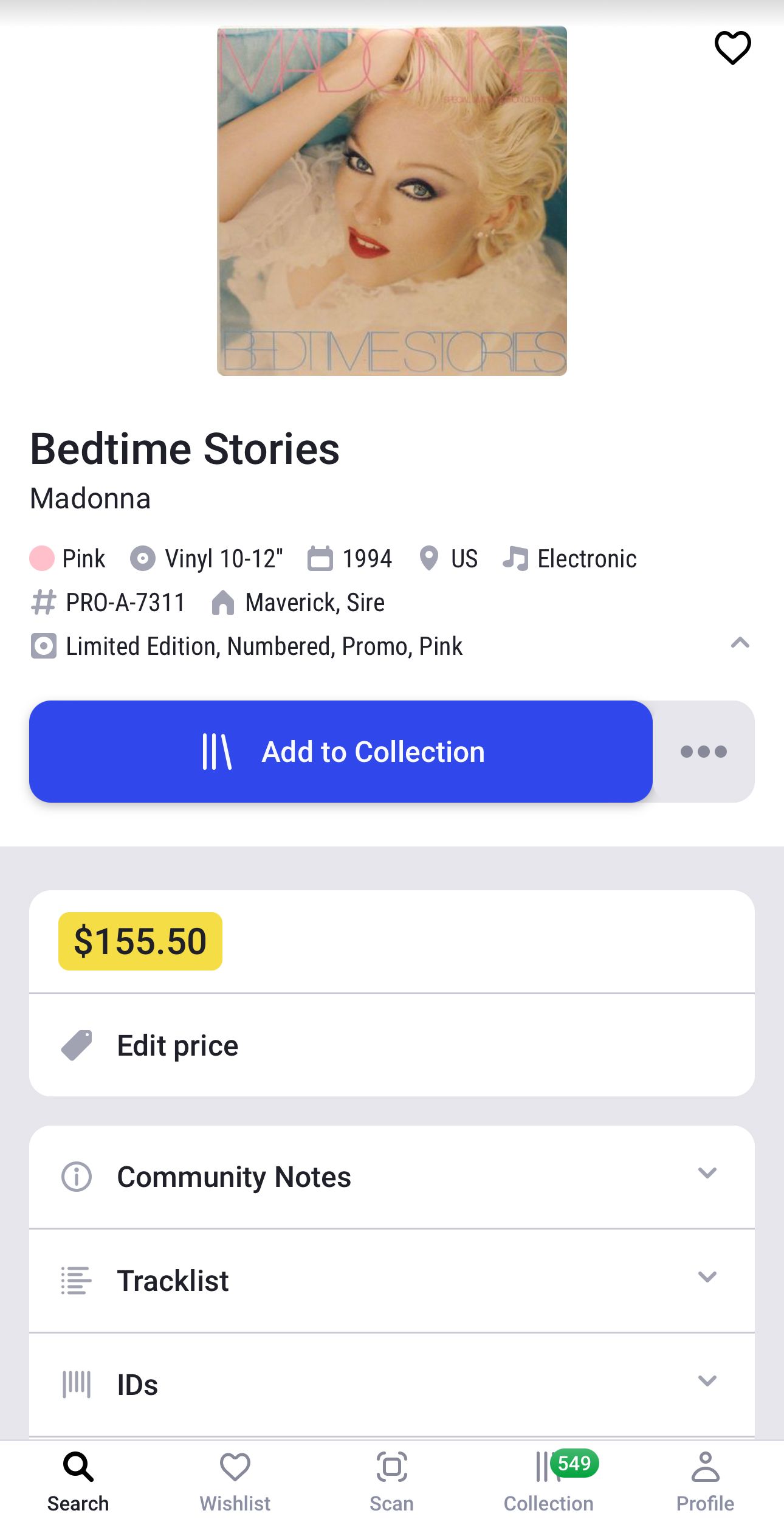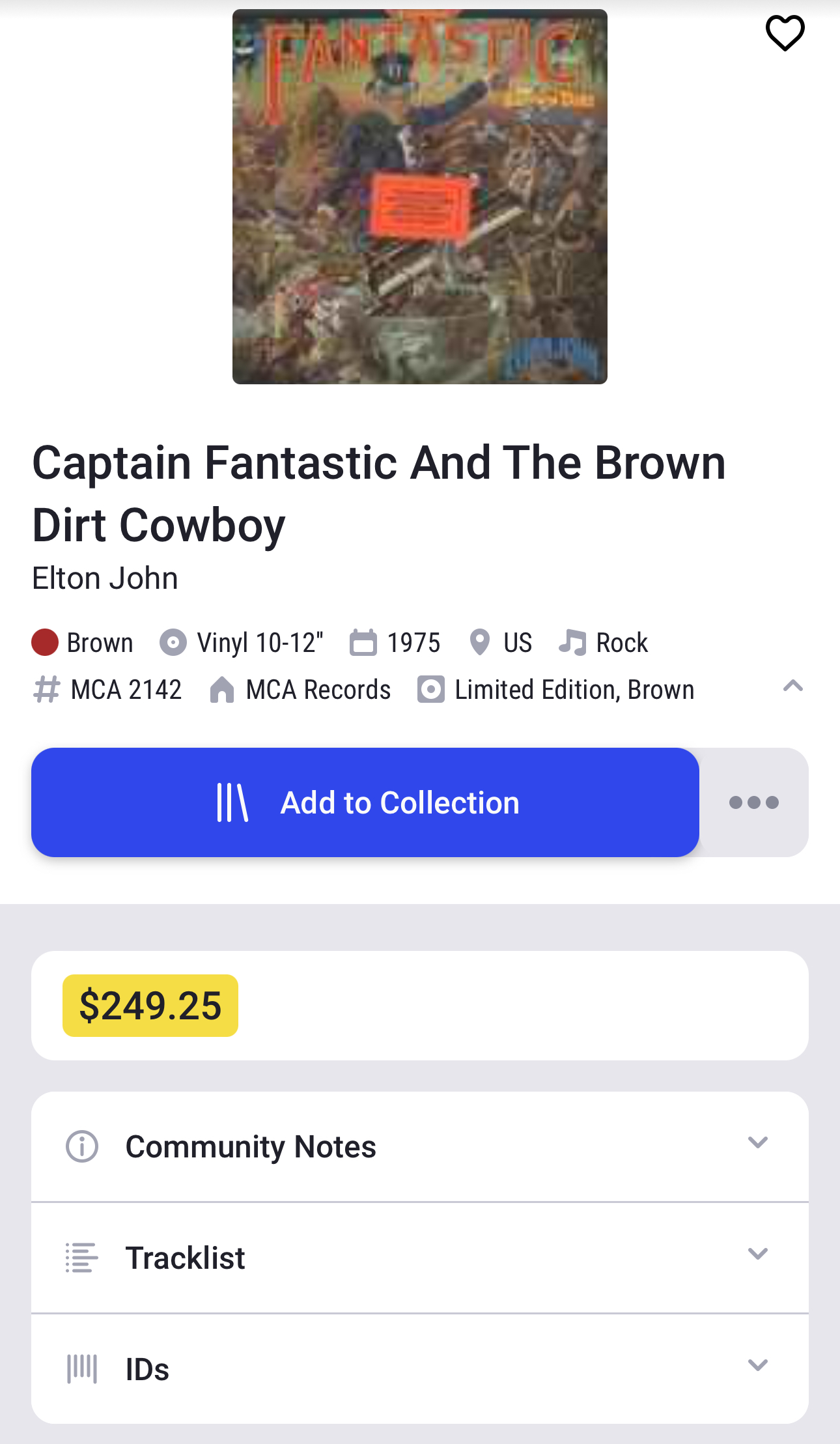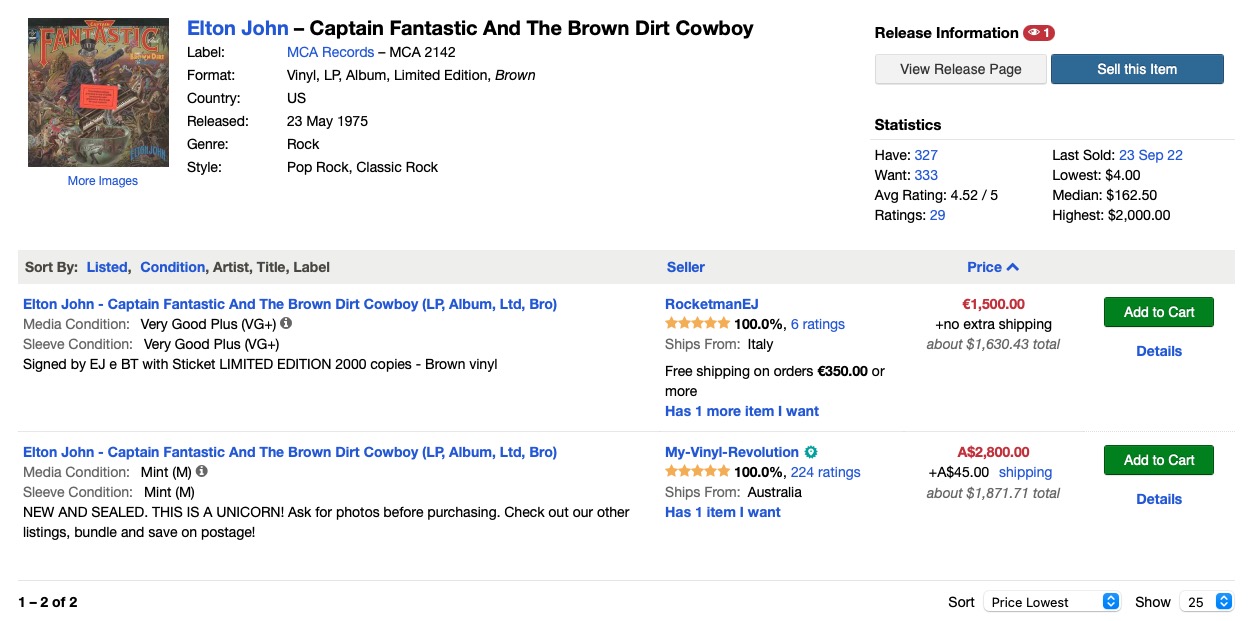Donna Summer: Bad Girls (1979)
These Gave Me A Whole New Appreciation For CDs
Having recently gotten back into CDs in a major way, I stumbled across this series of videos on YouTube and was captivated.
While even back in the day I had a general understanding of how this stuff worked, to this day it amazes me how any of this actually manages to work (and I've been a technophile my entire life). Forget the technobabble. It's voodoo and black magic, I say. Voodoo and black magic!
Released 41 Years Ago Yesterday
David Bowie: Let's Dance (1983)
I Picked This Up Last Week
Take me back to the 80s!

Interestingly, I wasn't familiar with most of the tracks on disks 4 and 5. I'm assuming that's because they were later 80s releases and by then I'd thrown myself fully into the New Age genre and wasn't going out much. I know, I know…living in SF and not going out much?! (Another topic for another time.)
My Musical Spirit Animal
And it explains so much if you really think about it…
I've had only one friend in my life who appreciated Philip Glass as much as I do. Sadly, he exited the planet during the horrific 90s, and I still miss him to this day. Wherever you are David, I hope you're enjoying Glass' music at angelic volume.
Takes Me Back To A Simpler Time
Inspired by this post on Instagram:
I realized I hadn't made my ears bleed with this album for quite some time. So I pulled out my copy (one of the few pieces of vinyl that survived the great purge of '88) and put it on for a spin. (Take care of your vinyl kids, it will last you a lifetime.)

And room shaking volume at only about 3/4 of a watt RMS peak! Can you say, "efficient loudspeakers"?

Midney's music takes me back to a much simpler time in my life when it seemed my only concerns were going out, dancing, getting laid, and having a good time doing it. No bills, no health concerns, no imminent collapse of western civilization…
Orville Peck & Willie Nelson – Cowboys Are Frequently Secretly Fond Of Each Other
Some Music History
New British Canon: Sweet Dreams & How Eurythmics Outraged America
Fascinating!
Another Excellent Pressing
Based on previous items I've purchased through Instagram ads, I have to admit when I first ordered one of these "Women of Song" recordings, I wasn't expecting much, but I've been pleasantly surprised. Colored vinyl always catches my eye, and while the color of my initial purchase (Nina Simone) didn't match the ad, the sound of the recording offset that enough that I tried another (Ella Fitzgerald, who—let's face it—I'm an absolute sucker for). That vinyl matched what was advertised, and the sonic clarity and absolutely silent background sold me on this series.
The Billie Holiday recording is no exception, and I will be exploring further Verve releases in this series. If you like classic jazz and buy vinyl, check these out.
How Well Do You Think You Know Me?
🤣 🤣 🤣
Released 38 Years Ago Today
Pet Shop Boys: Please (1986)
The soundtrack of my life for the first few months I lived in San Francisco.
For many years afterward I would still jump out of my skin when the computer beeps play in Two Divided by Zero because they were so new and unexpected.
Memories…
Released 35 Years Ago Today
Madonna: Like a Prayer (1989)
This anniversary also marks for me 35 years of being Pepsi free.
When Pepsi dropped Madonna as a spokesperson, citing the "sacrilegious" imagery in the Like a Prayer (Jeez, they had no idea what was coming, did they?) video, I swore I would never drink Pepsi again. And I haven't.
Just Because
T-Connection: Do What You Wanna Do (1977)
Another One To Be Filed Under…
"You'll never find that on CD!" 🤣🤣🤣
This album—that you've probably never heard of—has particular memories for me. You can read about them here.
And BTW, I don't know who is doing these remasters, but the sound quality is absolutely second-to-none.
New Music
Released 39 Years Ago Today
Sade: Diamond Life (1985)
Don't Ever Tell Me…
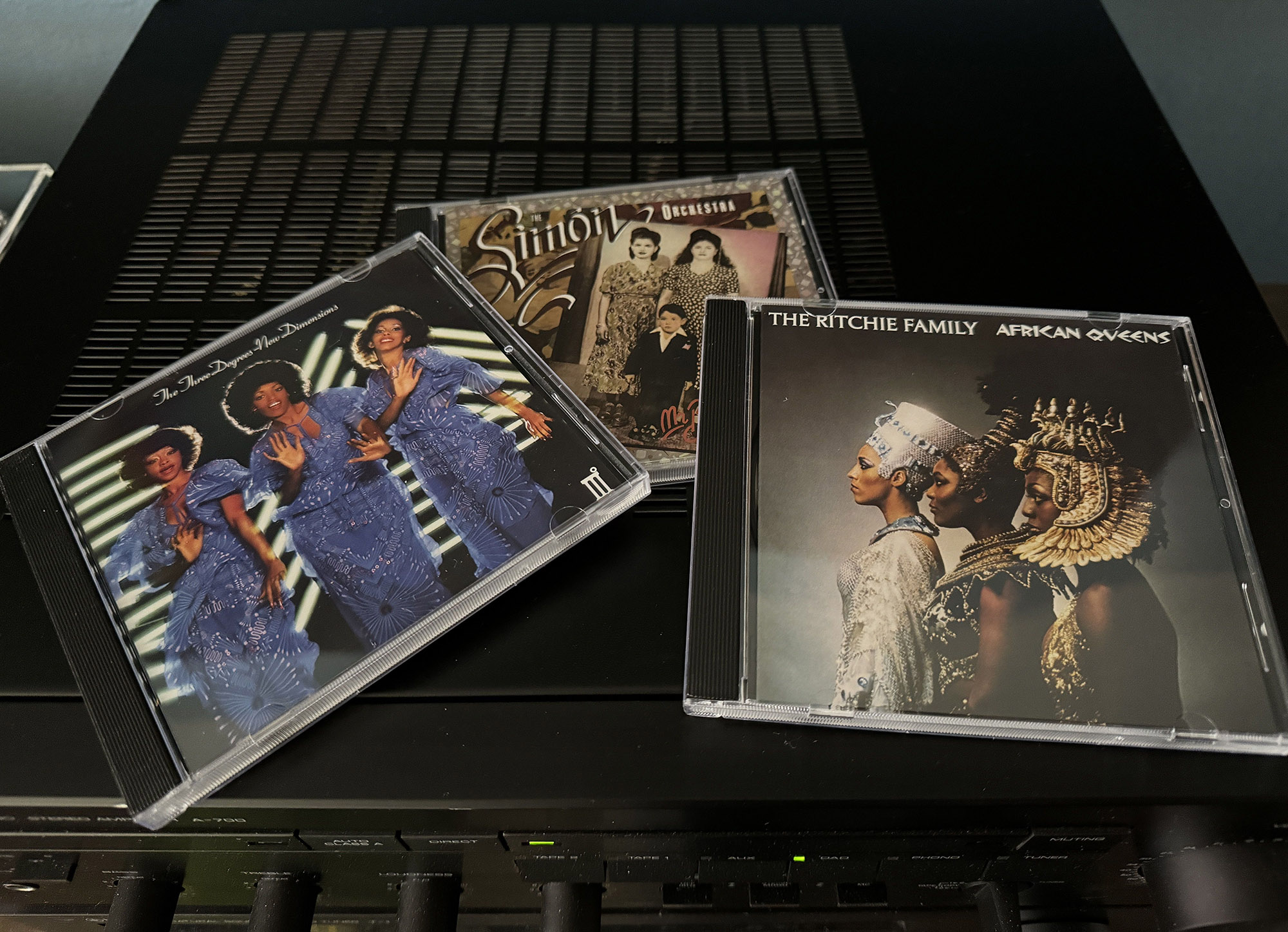
"Oh, you'll never find that on CD!"
Because I will take it as a challenge!
I actually got a reissued copy of New Dimensions about a month ago and was sorely disappointed when I set it to playing and instead of Giorgio's awesome and seamless transition from Giving Up, Giving In to Looking For Love, Giving Up, Giving In came to an abrupt stop and the second track on the CD was actually the third cut on the original album, Falling In Love Again. This was followed by an awkward start to the previously mixed original second track.
WTF? I mean seriously, WTF?
I went on Discogs and found that the original recording had been issued on CD, but Discogs itself prevented it (and from what I could see, a slew of other original disco gems from the 70s) from being sold through the service.
That led me to eBay, where I found it for sale from a highly-rated seller in Mexico. I also found dozens more (also brand new, sealed) that I hope to eventually add to my collection, Discogs be damned.
Unlike the reissued version, this CD has all the original songs in their original order with the absolutely seamless transition between the first two tracks. It also includes a bonus of the original 12-inch extended remix of The Runner.
For those of us of a certain age, Heaven was—and remains—a disco.
Help! I've Fallen Down The Rabbit Hole…
Released 38 Years Ago Today
So many arriving-in-San-Francisco memories…
Janet Jackson: Control (1986)
Released 47 Years Ago Today
Wanna feel old?
Fleetwood Mac: Rumours (1977)
Some say this is one of the best rock-n-roll albums of all time.
My own Fleetwood Mac story can be found here.
An Afternoon With Grace


Recommended.
A Rant
 Hey KJZZ…we know Phoenix is a vast radio wasteland. It has been for years. But I find it ironic that you (with those call letters, no less)—one of only two oases in that wasteland of talking heads, top 40 hits on endless repeat, and mariachi-laden Spanish-language programs—only actually broadcast jazz four days a week from 8pm to 1am. Otherwise it's all non-stop NPR and local news that is on repeat all fucking day.
Hey KJZZ…we know Phoenix is a vast radio wasteland. It has been for years. But I find it ironic that you (with those call letters, no less)—one of only two oases in that wasteland of talking heads, top 40 hits on endless repeat, and mariachi-laden Spanish-language programs—only actually broadcast jazz four days a week from 8pm to 1am. Otherwise it's all non-stop NPR and local news that is on repeat all fucking day.
Yeah, I know you have a second, HD channel that does play jazz all day, something I can get on my car receiver—but I'm not in my car all day. I also know you have an internet stream that mirrors the HD offering. But KUVO in Denver also has a stream available and their programming is hands-down a hell of a lot better than yours.
/rant
Sorry. It's been a horrible day.
WTF?!
I got my copy in 2019 for half that amount!
In fact, if you peruse Discogs for colored vinyl copies of any of Madge's albums, you'll see the prices are astronomical now. Are the bookies expecting her to shuffle off her mortal coil sometime soon? It's crazy!
And don't even get me started on this one…
Keep in mind the prices noted are the average of all the identical items listed for sale on Discogs at that moment in time. Bedtime Stories (the two-disk reissue on pink vinyl) has been one of my holy grails for as long as I can remember, but to pick up a mint or near mint copy, it's gonna cost you signficantly more than $155—like two to three times that.
And I'm sorry…even if I had the funds on my salary, short of winning the Lottery I'm not dropping $350-400 on a single piece (well, in this case 2 pieces, but you get my drift) of vinyl.
And while we're on the subject of the financially unobtainium…
I don't know where that $249 price is coming from, because if you actually go on the Discogs site, there are currently only two copies for sale and they're nowhere near that amount:
Why so much for an incredibly popular recording that had millions of pressings worldwide? Because this one is autographed and pressed on brown vinyl. Brown dirt cowboy, get it?
Released 43 Years Ago Today
Sister Sledge: We Are Family (1979)
Contextually Appropriate Worship
Bands From The 90s
I've always viewed the 90s (the decade in which I spent the majority of my 30s) as kind of a musical wasteland (mirroring my personal life), exemplified by grunge rock and rap. Ben and I were discussing this over lunch, and upon digging deeper, I actually remembered quite a few groups/performers that stood out for me during that time. And when pressed to start naming them, several immediately sprang to mind, which makes me realize that perhaps it wasn't such a wasteland after all:
-
- Cowboy Junkies
- Melissa Etheridge
- Duncan Shiek
- KD Lang
- Vonda Shepard
- Hooverphonic
- George Michael
- Chris Isaac
- Björk
- Garbage
- Pussy Tourette
- Annie Lennox
- Marla Glenn
- The Sea And Cake
- Engima
- and of course continuing work from Depeche Mode, Pet Shop Boys, and Madonna, arguably at the peak of their respective talents
What say you? Who springs to mind when you think of the 90s?
Just Because
I Got This On CD Last Week
Suzi Lane: Ooh, La, La (1979)
I've had it on vinyl since it was originally released, but my copy has taken such a beating over the years it's all but unlistenable. I suppose I could have sought out a more pristine pressing, but since I'm getting back into CDs of late I thought I'd see if it had ever been released in that format. Turns out it was, and I couldn't be happier.
I was surprised at the level of quality put into the CD reissue. The booklet itself was much more than I was expecting, it being not just a track list, but a dissertation on Suzi and the music itself. I tried to scan it to send to a friend with whom I share a love of this album but sadly the text was next to illegible (that's what they get for using peach colored text on a pink background). So I transcribed it and sent it off to him in an email.
For any fans of Giorgio Moroder and his relationship working with Donna Summer, Suzi Lane, and The Three Degrees, this is a must read…
TO EVERYONE AND EVERYTHING THERE IS A SEASON: THE RISE OF SUZI LANE AND A NEW SEASON
BY DAVID NICK YBARRA
A wonder, that's what she is, most of all. Not a "one-hit-wonder" but perhaps only a "one-of-a-kind" poised for more than disco obscurity and a mystery to Dance music lovers the world over for some thirty+ years.
"Where is Suzi Lane?" has always been the question, not "who." That question may be best answered by resolving another preliminary query, first: the "why" of it all.
If there had never been a parting of ways in the first place between Donna Summer and Giorgio Moroder, Casablanca Records and in essence Dance music in total, would there have been need or occasion for the subsequently sudden rise and equally sudden demise of Suzi Lane? Neither Summer's successor nor contemporary, in the summer of 1979, Lane – an unknown singer, and Moroder – the most famous music producer of the time, would collaborate on an album project that might have shifted the course of either party's music destiny and effectively championed a formidable diva of Dance for a new decade. It didn't happen that way but the prospect appeared promising, at first. And why not? Lane, a former Ford model and casino-circuit singer had the magnetism and the moves to mesmerize any man (and some women) with typical 20/20, yet her most complimentary attribute couldn't be appreciated by the naked eye; it need only be heard and then perhaps felt: her sparkling voice. It should have reverberated long beyond
its mighty solo debut at the sunset of The Seventies and it was anticipated to echo far into The Eighties but only silence followed, instead. A number one hit single from an obscure album remembered as much for its outrageous cover art as its classic Disco-music content became the legacy of one "Suzi Lane" Suziliene McDonald.
It wasn't meant to happen that way and it almost didn't, almost. In the spring of 1979, 22 year old Suziliene "Suzi" McDonald was one of several weekend guests at the home of Hollywood movie mogul Bob Rafelson. The Oscar-nominated producer/director had long been acquainted with the strikingly beautiful green-eyed showroom starlet since her historic turn as the first African American Showgirl in the "Folies Bergere" stage show at The Tropicana Hotel and Casino in Las Vegas. The future muse-to-Moroder
started out in a vocal group with her sisters performing renditions of standards and pop songs of the day. With Mahalia Jackson and Billie Holiday as her two greatest vocal influences Suzi aimed to become a jazz stylist, later touring Australia as the dancing-singing opening act for Damita Jo and Billy Esckstine before a stint in the creative camp of Sly & The Family Stone led her to Hollywood, the movie industry and the men who run the show on-set and off-lot.
As her social world expanded, so did her career. She became a Ford model and quickly began a runway romance with the hottest designers from New York, Paris and London.
Her vivid green eyes, full lips and hollowed cheekbones made her a favorite face of national cosmetic campaigns. The accompanying world travel kept her in the air and out
of the country most of the time and when she returned home there was always a party, an opening, an irresistible reason to get glamorized and go out. It was at such an event that Suziliene McDonald's fate would take an unwitting turn towards music stardom. It seemed an innocent enough crime: sliding down a staircase banister -as long as you didn't get caught. Not the most sophisticated mode of travel for getting from one level of a structure to another, but in Bob Rafelson's Beverly Hills mansion, it looked daring and the distance seemed a mile away: sure to provide a memorable ride for any respectable banister-bandit.
What was intended merely as a brief private diversion turned out to be a grand entrance instead, as a singing-Suzi slid into an impromptu "audience" of celebrities who were as awestruck as the culprit by her unscheduled "performance. The foyer thundered with applause as someone handed Suzi a flute of champagne and someone else helped her off the rail. There were calls for encores and for song requests amid the good-natured clatter of laughter, but somebody watching the spectacle was genuinely impressed:
Marisa Berenson. "Hell of a voice you've got," said the Time and Vogue cover girl-cum-actress to Suzi. The two became instant friends.
Berenson, the woman Yves Saint Laurent feted as "the girl of the Seventies," had been divorced the prior year and was being squired by a retinue of eligible bachelors, at the time. Whether it was the pursuit of friendship or something more is unknown but Giorgio Moroder agreed to meet her and her new friend for lunch at the Beverly Hills Hotel.
"At that point, I didn't know what the date was about." Suzi confesses today. "I didn't even comprehend the scope of Giorgio's career other than what Marisa told me: he produced Donna Summer's records. Maybe he could do something for me."
Ironically, the same proposal may have been formulating in Moroder's mind. A storm was on the horizon that few could forecast least of all those a million records or more from the eye of the disco-discord.
"In the middle of our lunch," Suzi recalls, "Giorgio turned to me and said, 'Marisa says you sing 'amazingly.' I trust her judgment, do you?" I didn't know what to say but he didn't give me time to answer. He simply offered. 'Let's go to the studio and see what you can do." Suzi tossed her napkin over her plate. "Ready when you are."
For her audition at Giorgio's home studio, Suzi put headphones on and waited for the music to begin. Marisa and Moroder watched through a glass window in the control room. "He put a track on that I had never heard before. It had a disco beat but it also had something else that sounded different. It was special. He didn't give me a lead sheet or any hint at all of how to find my way in the song, so basically I just improvised lyrics off the top of my head to the melody I heard in the headphones. His only instructions were "Just sing like you would if this were really your song."
Before she began, he played it for her once to get a feel for it. Moroder didn't even have to say who the track was intended for. It sounded so good, she already knew. "At least tell me what the name of this thing is," she asked. He nodded.
"On The Radio."
Those three words: "on the radio" meant nothing to Suzi at the time but she recalls the audition as more of a test of how she tonally moved through a song that she was totally unfamiliar with.
"I remember Giorgio saying after the audition that he couldn't believe such a strong jazz tone could come out of a such a young and (at that time) very thin girl. He didn't expect me to just go for it and sing my ass off, which is what I did. I improvised around the sound just the way I learned to do from Damita Jo with no fear, no hesitation, and that impressed him." As the final instrumental notes of On The Radio faded in her headphones. Giorgio switched on a mic to her headset and purred,
"Dahling… You're her. You're it."
Ever since Moroder and Summer's inception in Disco music some four years prior with Love to Love You, Baby, there had been a rotating cast of imposters who affected the phrasing and style made distinctly famous by Summer's sensual soprano married with Moroder's synth-centric electronic melodies. The respective couplings of Claudja Barry and Jurgen Korduletsch, Pattie Brooks and Simon Soussan, France Joli and Tony Green, were each transparent parings in their aim to emulate the Summer-Moroder star and her producer combination which the two personified in imitation was understandable if at first confusing for Summer's fans who heard commendable knock-off offerings like "Come To Me." "After Dark" and "Love for Sake of Love" by her ladiesin waiting.
All short-lived would-be successors to the throne of Disco, their attempts did little to shake Summer's firm reign as The Queen of Dance Music by the decade's end. By then, however. Donna Summer was clearly aiming to rise above the genre and
redefine her musical identity beyond disco's "First Lady of Love." She became reborn-
Christian in that final year, switched record labels and had reverted to her pop, rock and gospel music roots in anticipation for a new chapter in her life and career in a new decade: The 1980s. The dance floor would never be the same again. Neither would
Summer's career.
Artistically distancing herself from the European electro-dance style that Moroder was sculpting for the future, Summer's resistance to evolve as a Dance music diva for the 1980s was in essence forcing herself out of season indefinitely. With a sporadic hit here and there spaced by years apart instead of mere weeks as she had previously experienced, for the remainder of her career she would be known primarily for her four years (1975-79) with Moroder when she was essentially the "Queen of Disco," ironically the very title and music style she expected to overcome in the first place. Moroder, on the other hand, didn't resist the natural evolution of the electro-Dance music revolution he had pioneered with his muse. Why mess with a good thing that was not only evolving technologically but also affecting the evolution of all popular music, synthetically?
Instead. Moroder grew with the genre, not against it, prospering critically and
commercially into the 1980s as a producer of pop music and film soundtracks, and eventually scoring 3 Oscars plus 2 Grammy Awards in the process. If Summer had maintained the same direction of her dance music destiny, perhaps she would have naturally redefined her legacy beyond Disco, after all, just as she hoped to achieve, deserved to achieve in her lifetime.
In retrospect, the question that most begs to be answered is this: Was Giorgio Moroder looking for another Donna Summer when he found Suzi McDonald in 1979? During the height of his artistic and commercial apex with Summer and afterward, in all of Moroder's collaborations with every other female vocalist, the maestro has never denied nor confirmed that he was ever searching for Summer in Roberta Kelly, Munich Machine, the Three Degrees, Irene Cara or Suzi Lane.
His productions for each of the women mentioned, however, maintained pseudo-Summer hallmarks and utilized many (if not all) of the same musicians, arrangers and engineers associated with the Moroder-Summer trademark sound. Perhaps it was only natural for Summer's shadow to linger in Moroder's spotlight regardless of whomever else he might have worked with. Replacing her presence in his electronic soundscape would be like trying replace the sun's brilliant fire on the horizon with the dim glow of Proxima Centauri, impossible to eclipse, Thus a second question forms: Was the repertoire produced by Moroder and performed by these other vocalists comprised primarily of Donna Summer cast-offs?
In other words, songs that she flat-out rejected or ended up recording and never releasing? It was a practice of Giorgio to recycle songs that Donna had passed on to be then recorded by other artists he was working with like "Munich Machine." the moniker for his studio band and in-house singers. Chris Bennett, former lead-singer of "Munich Machine" recalls "Everything we recorded were Donna Summer's rejects, so even though they weren't good enough for Donna they were still good tracks." Of her own debut in the group, Bennett adds. "The songs were all in Donna's key which is about two keys higher than I sing… As long as I was in pitch, he could tweak it around a bit."
Bennett would later work behind the scenes beside Moroder as a co-songwriter
and co-producer on his own recordings of himself as artist and for others such as "The Three Degrees" and "Sparks." She would also work closely with Moroder on the writing and recording for his latest find of 79: Suzi McDonald.
"When Giorgio signed me," Suzi recalls, he said I was part of a plan which was to develop two other artists beyond Donna Summer to showcase his versatility as a producer. Donna, he said, had more of a "Broadway" type of voice whereas I was more of a "Jazz" voice."
Lane and Moroder flew to Munich, Germany to begin pre-production on the album at Moroder's "Musicland Studios." The selecting, recording and arranging of instrumental tracks were completed there to suit Suzi's range and one more thing: the changing of her name. "I went to Munich as Suzi McDonald and returned to America as Suzi Lane, the artist remembers. "My first name is "Suziliene" (pronounced "Soo-zah-lin") but everybody just called me as 'Suzi." Giorgio suggested changing my last name to something short and sweet because pronouncing 'McDonald might prove difficult to non-English speaking markets where my record would be heavily promoted."
Moroder had a point. Donna Summer had previously recorded as "Donna Gaines" and Roberta Kelly had previously recorded as "Roberta Watson" with little (if any) fanfare in their early efforts. Only after Gaines and Watson became "Summer" and "Kelly" respectively did either artist finally break into their initial commercial successes, albeit for a number of musical reasons but perhaps in some small way also because of their glamorous surname makeovers. "All I did was break-up my first name into two words and found it formed something thing sounded like a first and last name that was short and sweet, just like Giorgio wanted. That's when 'Suziliene' became 'Suzi Lane.'"
Recording commenced upon their return to Los Angeles. The Rusk Studios, located in the heart of Hollywood, was Moroder's preferred venue outside of Germany to record and mix all of Donna Summer's albums produced after Once Upon A Time (1977) until The Wanderer (1980). It would be the location for Suzi Lane's Ooh, La, La sessions, as well.
"There were 8 tracks we brought back from Germany," Suzi recalls, "and we started with Harmony. Written by Pete Bellotte and Moroder exclusively, the song that would become Lane's future #1 hit single later that year bore a striking resemblance to two songs that Donna Summer recorded just a few months prior for the "Bad Girls" album: Our Love and Walk Away.
At 128 beats per minute. Summer's Our Love and Lane's Harmony (at 122 beats per minute) maintain an identical bassline and nearly identical clavinet melody chord progression. Walk Away drags just a bit behind at 111 beats per minute, but utilizes the same saxophone bridge solo by Gary Herbig, instantly recognizable to Summer fans especially for his signature solos from the Bad Girls sessions to the She Works Hard For The Money sessions some four years later. Harold Faltermeyer provided the musical arrangements for Summer's Bad Girls album and Lane's Ooh, La, La album, so the crossover quality in either production was natural but also uncannily significant.
Though the lyrics and vocal arrangements differ (Summer wrote the lyrics for Our Love, Pete Bellotte wrote the lyrics for Harmony), a listener would only have to play the two songs simultaneously to hear the sonic appreciate the influence of the former on the latter's structure and sound. The subject matter and verse-struct either lyric are identical, as well, both utilizing lambic pentameter to form their respective verses with only variations in the chorus parts yet both accommodating the same bass beat, anyway. If you were to substitute either song's chorus for the other, or better yet; add the Harmony verses to Our Love or vice-versa, you would find a linear continuation to either lyrical theme that also accommodates either melody, perfectly.
The similar elements of Our Love and Walk Away in Harmony may partly explain the success that Harmonyhad as a number one hit record in 1979. Harmony was released as a single in the midst of Summer's Bad Girls reign and if music listeners thought it sounded familiar, Summer's fans may have mistakenly assumed it was the latest from Donna Summer's Bad Girls album.
It was understandable. Single releases from Bad Girls continued to chart a year later even after Summer had put out a new album (The Wanderer, 1980) and Casablanca Records had issued two Greatest Hitscollections in the interim. "Harmony just might as well have been something Donna Summer could have made a hit," Chris Bennett surmises today. "It might have even been a cut she passed on, considering the time we started recording Suzi's album."
Limited to singing in mostly "head voice" throughout the sessions to exemplify the breathier, airier, sensual capacity of her warm soprano range, Harmony permitted the one instance for Lane to also spread her wings, vocally, and prove she could do more than coo and sigh in key and on cue like a "road company" replacement for Donna Summer.
Though Lane's intensity sounds greater than her vocal power that may have more to do with the demands of the Dance music medium and her director (Moroder). "Giorgio never allowed me to belt when singing." Lane asserts. was adamant that I sing in my higher register, exclusively." Because there is no before or after the Ooh, La, La album, it's impossible to estimate if Lane was instructed to emulate Summer in these sessions or if she always sang exclusively in her top range like fellow disco diva Pattie Brooks. Neither Lane nor Brooks veered into middle or lower range performances in their respective careers whereas Summer was remarkably versatile and as powerful in her middle and lower registers as often as when she sang in her "top" voice. Nevertheless, Harmony blessed Lane with an impressive seven minutes of spiritualized solo grace while Chris Bennett and Maxine Waters rounded out the chorus like inspired angels in a disco-afterlife chanting behind Lane's lead Harmony would go on to be the second single release from the album. Morning. Noon and Night and Free Me were the two final Moroder/Bellotte tracks that made it to the album.
With the exception of Harmony, all other cuts that became either "A" or "B" sides of the album's two single releases were instead composed and written by Harold Faltermeyer and Chris Bennett.
Morning, Noon and Night and Free Me both offer lushly symphonic arrangements that suit Suzi's breathy tone and breezy delivery but sound suspiciously dated in comparison to Moroder and Faltermeyers' more progressive output by 1979.
Whether these were originally intended for another artist other than Lane is not known.
Bennett offers, "Giorgio and Pete were always cranking out tracks for the disco machine, you know, with Donna as the main focus. It isn't unlikely that some of what they brought back from Germany for Suzi were like that." Free Me (with its whispered refrains of "So glad, so glad/so sad, so sad/too late, too late/heartbreak, heartbreak")
sprinkled liberally between the lines of verse sounds like the strongest case of a leftover that may have been intended for the vocal trio The Three Degrees who by then had long since abandoned their trademark Philly soul sensibilities for the electronic Euro-Disco confections orchestrated by Faltermeyer and Moroder.
A similarly titled release by The Three Degrees from Moroder/Bellotte/Bennett called Set Me Free (1979) sounds like a more-fully realized incarnation of Free Me, but the latter cut doesn't serve Suzi any better.
As the last song on Side 2 of Ooh, La, La it actually makes for an odd finale. Morning, Noon and Night also sounds like something intended for The Three Degrees as the heavy string parts and repetitive multi-layered chorus parts (courtesy of Chris Bennett and Suzi Lane) effectively pad Lane's lean lead vocals in verse. The result isn't unpleasant, but the song seems a bit too deep for Lane to swim in comfortably on her own which hints at the possibility that the song was intended for a more powerful sonic swimmer (Donna Summer) or group of swimmers (The Three Degrees). Intentional or not, the storming orchestration and lapping backup vocals of Morning, Noon and Night don't totally drown Lane's voice out but they don't keep it afloat it either. It remains an
interesting album cut that a few years earlier might have meant a single for another singer. For Lane, it's only album filler.
Ooh, La, La, Givin' It Up, and No One Home In The City were written specifically for her album and not any other artist," songwriter Chris Bennett affirms. These trio of songs would also form the contents of Side1 and segue seamlessly into one another while still maintaining the individuality of each number. The absence of "fade-outs" and "fade-ins" of any given album-side provided a continuity which served Dance music fans favorably who came to recognize the technique as a Moroder trademark he effectively produced in works by Donna Summer (notably The MacArthur Park Suite and albums Once Upon A Time, 1977 and Bad Girls, 1979) as well as Roberta Kelly (Zodiac Lady, 1978).
Ooh, La, La became the lead single from the album and benefits from Gary Herbig's uncredited signature sax solo (as with Harmony) but Faltermeyer's arrangement is funkier this time with synthesized handclaps providing the bass beat that underscore the catchy Moog riff serving as the bassline.
Lane's vocals benefit from being doubled tracked and delayed in the lengthy choruses so that by the time she sings in single-voice at the 2:44 mark for the first verse, the listener can appreciate that the strength of the 7:39 song layin Faltermeyer arrangement and Moroder's production, foremost.
Givin' it Up became the B-side for the album's second single release, Harmony and makes an enticing segue from Ooh, La, La with its milder groove and cool percussion accents that don't diminish the disco momentum, just extinguish the overtly flirtatious funk "vibe" of the former cut. It may be Lane's finest moment, vocally, because the mellow arrangement and overall softer music production accommodate the intimately expressive style of Lane's sensitive soprano. It isn't a strain on her voice or a test of her power as some of the other cuts prove to be. Instead, Givin' It Up is tailor-made and fits well. "I had a problem with the song when it was presented to me," Lane giggles today. "It was the only one I hesitated recording and that was strictly because of its title. I said to Giorgio, "Excuse me, but just what am I supposed to be 'givin' up' in this song?" Anytime I ever heard a girl refer to "givin' it up" or a guy talk about a girl who "gave it up," the "it" was usually of a sexual nature." Moroder assured her that the expression did not apply, but Lane had her doubts. "After all," she reasoned, this was the man who got Donna Summer to sing her way through an orgasm on Love to Love You, Baby.
Givin" It Up and the following cut No One Home In The City are lyrical stand-outs because they're the only songs on the album with a definitive narrative storyline. They're also sympathetic vignettes that naturally correlate to one another like two adjacent parts of a disco opera Chris Bennett and Harold Faltermeyer never completed for Suzi Lane. Perhaps the two missing recordings that Lane recalled of the "Ooh, La, La" sessions would explain the missing first and fourth acts that might bookend either side of Givin' It Up/No One Home In The City and complete the bigger musical storyline. In Givin' It Up,
Lane sings the story of a woman committed to moving on and living alone following the break-up of a romantic relationship.
The maturity of the lyrics imply divorce and though Lane never strays from the verse, her replacement of the word "beer" for "milk" in one line powerfully suggests a personal point of reference for the singer. No One Home In The City accelerates the disco pace suddenly with Lane proving she can shift gears as smoothly from the first beat forward as she sings the words "How long was I sleeping? Gotta try to clear my head/Was it all a bad dream, or some book I read?" Like making the realization that she really is alone.
No One Home turns into a lament about not being able to reach another human being by telephone effectively conveying the subtle paranoia of monophobia set to music. The chorus refrains by Chris Bennett come off like ghostly voices in Lane's head with
Bennett apathetically echoing "Nobody's home, Nobody's home" and "Out on the run, Out having fun" after Lane's verses. A false resolution appears in the final verse as Lane's phone finally rings only to be wrong number ("You want 3-4-7. Mine is 3-4-1").
The shadowy mood of the lyrics over the disco melody combined with the call and response parts between the lead vocalist and background voices remarkably resemble the structure of Faster and Faster To Nowhere, a Donna Summer-penned cut from her Disco-fantasy double-album, Once Upon a Time (1977). Faster and Faster to
Nowhere and No One Home In The City both reference dream/nightmare terminology and both employ ahypothetical city as the geographic basis for their storylines.
Summer's "city", however, is closing in on her while Faltermeyer/Bennett's "city" is totally abandoned therefore making Lane's mind close in on itself.
Both songs are disturbing disco odes inspired by metropolitan freak-outs ala Moroder.
While the album was being mixed and mastered, Moroder arranged for Lane to be signed to the Elektra Records label. "At the time I think he was looking to move away from Casablanca (Records)," Chris Bennett surmises, "and with Suzi's poised to be his next big female star, I think he saw he could make a better deal elsewhere."
Innovative LA-based photographers Kenneth McGowan and Doug Coder collaborated on the evocative cover art which depicted an apparently topless Suzi in a ¾ frame staring masterfully into the camera while crossing her arms self-consciously, touching either bare shoulder with the opposite hand, fingers spread to show off her talon-like nails airbrushed a scarlet shade of shamelessness. Her pose suggests humility but her face belies a wantonness gaze of desire, experience and lust. It is surely the most provocative of album covers since Chris Bennett's topless foray for the cover of Munich Machine's A Whiter Shade of Pale(Casablanca Records, 1978) only this time Suzi wasn't really topless. "I'm actually wearing a peach bikini top, Lane laughs today," but they airbrushed it right out of the picture and painted a bare torso that is absolutely my body.
The Ooh, La, La album debuted during the second week of Donna Summer's month-and-a-half long domination of the #1 album spot on Billboard's Top 100 for Bad Girls that July. Club performances at such prestigious venues as Studio 54, the Paradise Garage and the Roseland Ballroom in New York followed appearances on national television shows such as Dance Fever where Suzi performed the title cut and Harmony which was already being primed for single release a month a half later.
A European tour of concert dates and personal appearances followed in the fall and it was then that "Harmony" began its 6-month ascension on the Billboard charts to the Number 1 position on November 10th, 1979 – exactly four years after Summer's Love to Love You, Baby hit Number One on the Billboard Dance Singles Chart in the fall of 1975.
Elektra, pleased with the results of her debut, encouraged Moroder to begin preproduction immediately on her follow-up for 1980. "I had a three album deal at the label," Lane remembers, "and by the time I got off of promoting the Ooh, La, La album, I wanted more of a creative input on the style and direction of what we would do next. Giorgio was supportive of this so much that he sent me tracks to begin writing lyrics for and that's when I came up with an entire concept-album built around the title Savage Gold. When I sang him one of the songs I wrote for it called Vampire, he flipped!"
Recognizing Lane's potential as a formidable singer/songwriter in the vein of his original protégée, Donna Summer, Moroder encouraged Lane to fulfill the concept and agreed to reunite a few months later in the New Year (1980) to start recording. It would never happen.
In the Spring of 1980, fate would deal a cruel hand in the form of a disfiguring head-on collision that sent Lane through the windshield and nearly claiming her life. She'd been a passenger in a car driven by her sister on a desert highway traveling to Vegas from L.A. when what appeared to be a sudden sandstorm whipped up by the wind turned out to be the reckless trail of an oncoming vehicle zig-zagging down the road. Suziliene McDonald survived, according to police reports and hospital records, but "Suzi Lane's dreams of music stardom seemed to fade that very day. "I became a recluse and spent the next four years rehabilitating while my face and body healed," the artist recalls. A single phone call with Moroder dissolved the Elektra contract. "I left Suzi Lane behind like a sweet dream and resolved to return to being Suzi McDonald for the rest of my days."
By the mid-1980s after years of physical therapy, faithful prayer and spiritual growth. Suzi completely healed and returned to modeling successfully. "From time to time I would get the comment, 'You look like Suzi Lane.' I'd usually reply, 'Who?' Every now and then, though, l'd acknowledge the compliment, bitter sweetly," the artist confesses today.
"It was hard to walk in the shadow of another singer and never realize that you were in the shadow. Donna is an amazing diva and I applaud her talent, and I appreciate the fact that I say two sets of foot prints in the shadow. I may have walked behind her and what and great shadow to follow, from her singing soft and sweet to a huge vocal expression. There was so much Suzi Lane could've been had not for the accident, you know?"
The advent of the Internet and the renaissance of Disco music coincided in the 1990s and as such Suzi Lane began to be rediscovered, remixed and referenced by a new generation of Dance music enthusiasts and deejays who revered the "Ooh, La, La" album as an electro-disco masterpiece.
"These days, I'm not such a hermit anymore," the lady confesses, "and I never EVER stopped singing." Looking as beautiful as ever—and as outgoing, the voice of Suzi Lane has retained all of its sparkle but it's stronger than what she was allowed to sing, too.
"When I sing a song now, honey, I belt it out—something Giorgio never let me do!"
Reunited with former co-producer Chris Bennett, the pair are presently collaborating on a major music project that will serve the legacy of Lane's story and restores her place in Disco music history as a Dance music Diva of the first order.
"Today, when somebody comes up to me and asks, "Are you Suzi Lane?" I give them a big hug and bless them for remembering me. When I think of the exposure I received, that was all SUZI LANE! The historical promotional tour starting in Cannes Film Festival's Red Carpet in France, to Ooh La La Sassoon Jeans, and being recognized as Suzi Lane throughout the world! I am proud of all the first's in my life and career. I am also glad to have had the opportunity to work with Moroder, and look forward to sharing myself, my song writing, the completion of my book, my new show to share with the world and no longer in anyone's shadow. Today, I'm proud of what Suzi Lane has accomplished, it only took one album, a couple of hit records, and continuous dreams to be successful. I don't look back on what could've been because what is, is another opportunity of new beginnings daily, and that is more than enough! So, I dare you to dream! Never Stop Dreaming, Dreams Really Come True!"
Ooh, la, la, indeed.
—David Nick Ybarra, Hollywood, USA
Though Suzi Lane remains passionate about her singing carrer, today she is VP
Volunteer at Hands of Comfort Foundation, Inc. An organization founded by Patricia McDonald-Green (niece), HOFC is a mission driven organization committed to helping individuals emerge from crisis and trauma through a process of intervention, education and support that empowers individuals to positively transform their lives. As with the trauma of her car accident now living a life of Triumph, Shift and Perceptions and Changing Lives is Suzi's motto! And "DARE TO DREAM, DREAMS REALLY COME TRUEI"
I can add only a couple things to this admittedly long review. Firstly, I went back and listened to the album after reading this and saw how obvious it was that certain tracks were originally intended for The Three Degrees. I can hear them singing in place of Suzi so easily. Secondly, something the author missed entirely is how Suzi's Harmony and Giorgio's own I Wanna Rock You are almost identical in tone and structure. The lyrics are completely different of course, but the underlying melody and beats are interchangeable. I remember noticing this back when the two albums were released and pointed it out to my DJ friend Steve who said he'd never noticed it, but once I played them both back to back for him he was like, "Damn, girl! I'm gonna mix the shit out of those two this weekend!"
